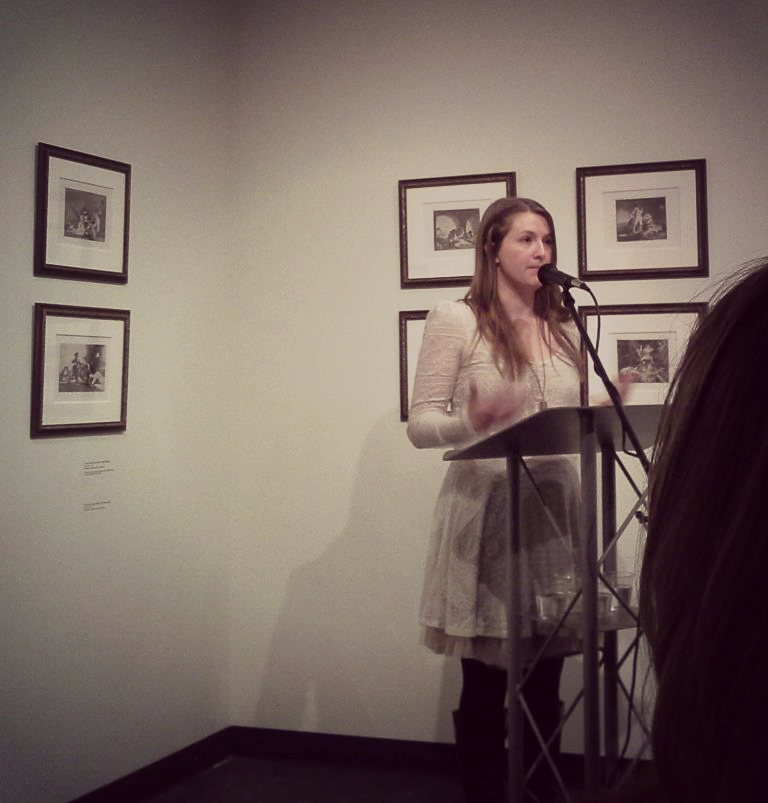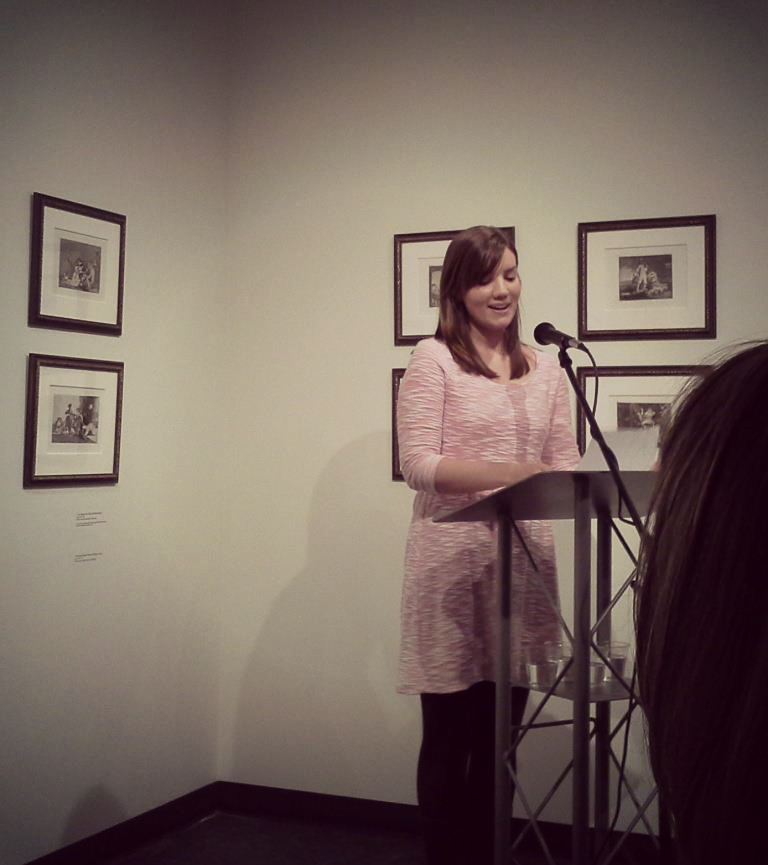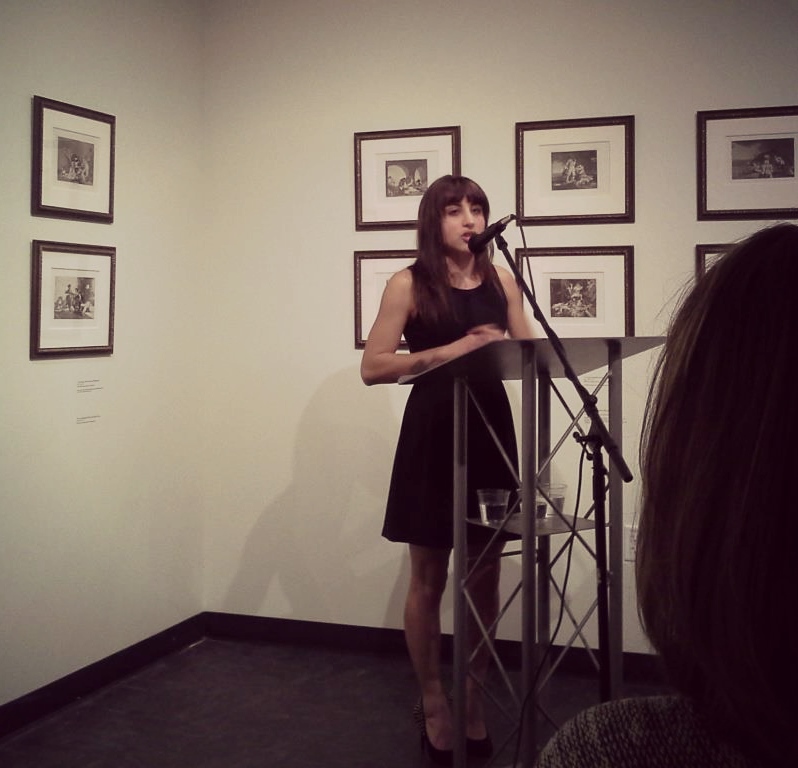by English Department Communications Intern Kara Nosal
Where does a person end and her words begin? I began to wonder at the February 19th Master of Fine Arts poetry and fiction reading held at the University Center for the Arts. Each of the four writers — Kristin George Bagdanov, Mary Hill, Bryan Johnson, and M.C. Torres — infused their art with distinctive parts of their identities, and because of this, as the night went on, I could feel boundaries disappear.
First to read was Kristin George Bagdanov, an ecopoet. Before many of her poems, she explained to the audience what part of nature inspired her to write. One poem was written from her history with earthquakes as a young girl in Orange Country, California. Another was inspired by a recent fascination with YouTube videos chronicling the crumbling of polar ice caps.
Interspersed between these poems examining large swaths of the natural world were poems about bodies. Bagdanov reminded the audience that the human body is also part of the natural world, even if we often live as separate from it as possible. In her poem “Purge Body” which was also published in the Mid-American Review, Bagdanov writes about light pollution on a very small, very human scale: “Small crack/ in the door, green flare of the charger: no/ darkness. No place left wholly its own.”

Mary Hill was next to read. Recently, Hill worked as a caregiver for an elderly man with Parkinson’s and her poetry chronicles their parallel journeys: her journey from caretaker to friend and his journey to his final days on Earth. These journeys were not easy, it seemed. One series of poems from this time period was titled, “Reasons to Get Up in the Morning.” The reoccurring sound of these words created a time loop in which the audience could get lost. Hill’s use of line breaks continued this loop. I remember one line that seemed to end like this: “to fix you” but was immediately followed by “eggs.” The closeness of this relationship, between these two people who “grow cold together” is apparent in the tiniest of details.

Soon it was Bryan Johnson’s turn to read from his novella, In the Eternal Shade. Like Hill, Johnson zoomed in to focus on the small details of his story. Quickly, I became engrossed in the drama happening in front of me centralized in the main character, Leon, a father and artist struggling to create the life he wants. I listened intently as Johnson drew a parallel between Leon’s interactions with his daughter, which balance on the brink of violence, and Leon’s need for literal balance up in a tree later. The tension as Leon reins in his temper toward his daughter and shifts his weight to keep from falling was revealed in the details: the accidental bonk of the daughter’s head on the back of a chair, or a quick test of a branch’s strength.

Lastly, M.C. Torres approached the podium to read from her novel, All Things Occur in the Heights, which focuses on four characters who live in the same town, but happen to live in different time periods. “The day,” Torres recited, “never ended and perhaps it never began.” Torres read to us in a voice much like the “methodic rhythm of the bus” while leaning intently on the podium to get as close to us as she could. I’ll admit that I didn’t take very many notes as Torres read. I couldn’t tear myself away from her description of one character who hears the voice of God long enough to pick up my pen again. I simply wanted to know what was next, what was around the corner.

At the end of the reading, I felt as if I had shared the personal experiences of these writers. The line between words and writer had dissolved, but furthermore, the line between the writers and myself seemed to have dissolved as well — all because they were brave enough to allow me into their art.